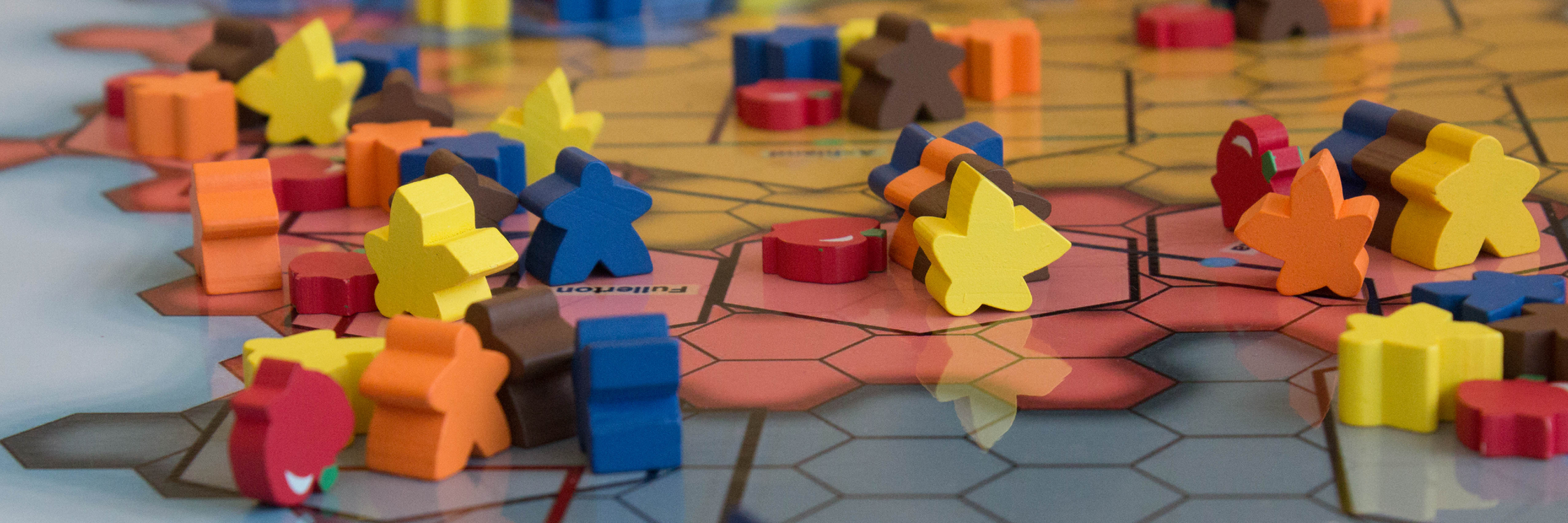Hexacago Health Academy 2.0

Project Website(s)
-
Project Description
What is Hexacago Health Academy 2.0?:
HHA 2.0 builds upon the success of Hexacago Health Academy, our prior Science Education Partnership Award in which Ci3’s Hexacago board, a game board depicting the city of Chicago with an overlay of hexagons, was used to teach game design and enable youth to design and play STEM/health games. In HHA 2.0, board game design will be enhanced to include computer science topics as youth learn the theory behind digital game design and experiment with augmented reality games (e.g., games which combine analog and digital components). HHA 2.0 will create two summer/academic-year pathway programs for high-performing, rising 11th grade Chicago area students from groups currently underrepresented in STEM/health fields. Each program will teach STEM/health education, STEM/health career awareness, and the college admissions process. The curriculum will include topics such as: pregnancy, STIs/HIV, obesity, smoking, alcohol and drug addiction, and violence.About Ci3:
Founded in 2012 by Melissa Gilliam, MD, MPH, the Center for Interdisciplinary Inquiry and Innovation in Sexual and Reproductive Health (Ci3) is an award-winning research center at the University of Chicago addressing the social and structural determinants of adolescent sexual and reproductive health. Ci3 envisions a world in which all youth emerge into adulthood with agency over their bodies and futures. The work of Ci3 takes place within three labs: The Game Changer Chicago Design Lab; The Transmedia Story Lab; and The Design Thinking Lab. Within these labs, we create games and digital narratives and design interventions with and for youth. Ci3 is committed to empowering young people, conducting innovative research, and uncovering opportunities for policy and systemic change. -
Abstract
Hexacago Health Academy 2.0 (HHA 2.0) builds upon the success of a prior Science Education Partnership Award in which the Hexacago board, a game board depicting the city of Chicago with an overlay of hexagons, was used to teach game design, enabling youth to design and play STEM/health games. For HHA 2.0, the Hexacago board and board game suite will inform the design of Hexacago Health Academy 2.0 Game On (HHA 2.0 GO), a theory-based, game-based STEM/health pathway program for high-performing, rising 11thgrade students from groups currently underrepresented in STEM/health fields who attend Chicago Public Schools. The multidisciplinary University of Chicago team shares a commitment to using game-based learning experiences to empower youth with the skills, capacity, and support to achieve optimal health and wellbeing. The team will design HHA 2.0 GO to incorporate game-based learning. They will also design The UChicago STEM/Health Pathway Program (UC-SPP), a traditional pathway program, to serve as a comparison arm. HHA 2.0 GO will rely on the Social Cognitive Career Theory (SCCT) and the extant literature on the SCCT for racial and ethnic minorities and STEM careers. Both programs will include a two-week summer intensive and ten academic year booster sessions. Educational content will cover STEM/health topics, STEM/health careers, and the College Admissions process. Young people will be randomized to either HHA 2.0 GO (n=72) or UC-SPP (n=72). Youth not randomized to either program will be asked to serve as a non-intervention control group (n=56). Surveys and focus groups will be used to compare outcomes across the two intervention groups and the non-intervention control group during, immediately post, and at one-year post intervention. The study hypothesis is that students randomized to HHA 2.0 GO will score higher on a composite measure of knowledge, self-efficacy, interest, goals and behaviors regarding STEM/health topics, STEM/health careers, and the college admissions process short term and longitudinally compared to those randomized to UC-SPP and compared to those in the non-intervention control group.
-
Dissemination Strategies
Using a multi-channel communications plan, we will disseminate program milestones and findings to the neighboring Chicago community, academic community, and Science Education Partnership Award community.
Project Photos
Project Audience
Chicago area 11th grade students from groups currently underrepresented in STEM/health fields.
Subjects Addressed
STEM, public health, reproductive health, smoking, drug/alcohol use, structural violence, games for learning







